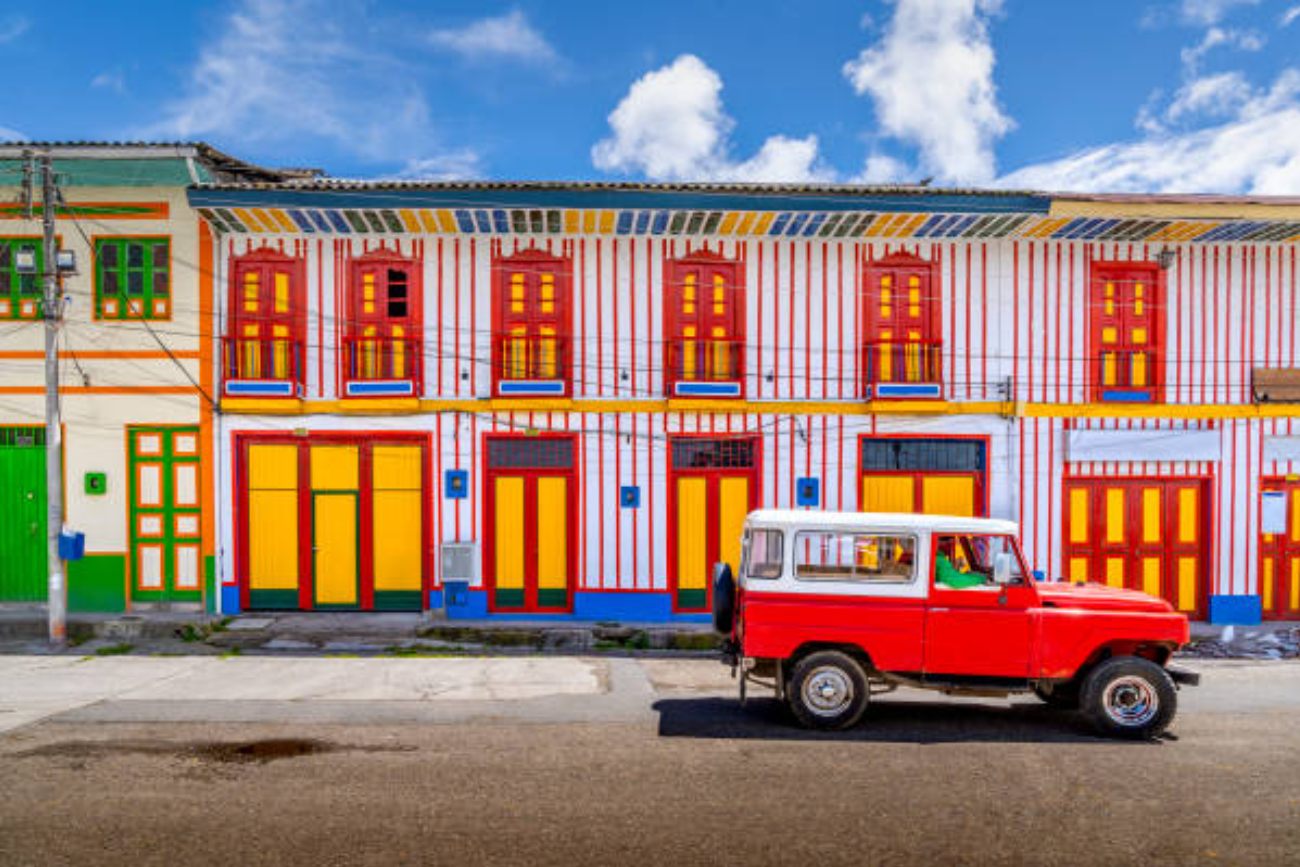
20 Colombian Spanish Phrases You Need to Master
Colombian Spanish is full of unique expressions that add flavor to everyday conversations. Whether you’re visiting Colombia or improving your Spanish, learning these key Colombian Spanish phrases is essential. By mastering them, you’ll connect more deeply with locals and enjoy a richer cultural experience.
Colombian Spanish is known for its clarity and neutral accent, making it an attractive dialect to learn. However, what sets it apart are the vibrant expressions that reflect the country’s culture and friendly nature. Incorporating these phrases into your vocabulary will help you sound more natural and engaged in conversations, allowing you to blend in seamlessly with the locals.
Everyday Colombian Spanish Phrases

1. ¡Qué chévere!
This versatile phrase means “How cool!” or “That’s great!” Colombians use it to express enthusiasm or approval in various situations. For example, when someone invites you to an event, responding with “¡Qué chévere!” shows your excitement. You will hear this phrase frequently, so it’s a good idea to start using it early in your conversations.
2. ¡A la orden!
You’ll often hear this phrase in shops and restaurants, where it means “At your service.” It reflects the welcoming nature of Colombians, who are always ready to help. Shopkeepers typically use this phrase to indicate their willingness to assist customers. By responding with a smile, you show appreciation for their hospitality.
3. Estoy mamado/mamada
This informal expression means “I’m tired” or “I’m exhausted.” Colombians frequently use it to describe physical or mental fatigue. After a long day of exploring the city, saying “Estoy mamado” (for males) or “Estoy mamada” (for females) will help you communicate how drained you feel. This phrase is especially common among younger people.
4. ¡No joda!
Colombians use this phrase to express surprise, frustration, or disbelief, similar to saying “No way!” or “You’re kidding!” in English. While it’s a popular expression, you should be mindful of the context, as it can be informal and slightly vulgar. Among friends, however, it adds a touch of authenticity to your speech.
5. Me da pena
“Me da pena” is a polite way to express embarrassment or reluctance. You’ll hear it often when someone is declining an offer or apologizing for a minor mistake. For example, if you’re too shy to accept an invitation, saying “Me da pena” is a gentle way to decline. This phrase is an important part of maintaining politeness in Colombian interactions.
6. ¡Pilas!
This phrase, which means “Be careful!”, “Watch out!”, or “Pay attention!”, is used to alert someone to be cautious or to encourage them to be more proactive. For instance, if you see someone about to make a mistake, saying “¡Pilas!” serves as a quick and effective warning. It’s a versatile expression, useful in a variety of situations.
7. Tranquilo/Tranquila
Meaning “Calm down” or “Don’t worry,” this phrase is often used to reassure someone. It reflects the laid-back attitude commonly found in Colombian culture. If someone is stressing over a minor issue, saying “Tranquilo” (for males) or “Tranquila” (for females) helps to soothe their concerns. The phrase is suitable for both casual and serious conversations.
8. ¡De una!
The phrase “¡De una!” is equivalent to “Right away!” or “Let’s do it!” in English. It’s an expression of eagerness and willingness to take immediate action. For example, if someone suggests a spontaneous activity, responding with “¡De una!” shows your enthusiasm. This phrase is a favorite among Colombians, who often use it to convey their excitement.
9. ¿Qué más?
A common greeting in Colombia, “¿Qué más?” literally means “What else?” but is used like “How’s it going?” It’s a casual and friendly way to ask someone how they are. When you greet someone with “¿Qué más?”, you’re engaging them in a conversation that’s both welcoming and informal, setting a positive tone.
10. ¡Hágale!
Similar to “¡De una!”, “¡Hágale!” is an encouraging phrase meaning “Go ahead!” or “Do it!” It’s used to show agreement or motivate someone to take action. Whether you’re agreeing to a plan or urging someone to try something new, “¡Hágale!” is a phrase that will resonate well in both personal and professional settings.
Ready to improve your Spanish with these Colombian phrases?
Colombian Spanish Phrases for Special Situations

11. ¡Qué embarrada!
When something unfortunate happens, Colombians might say “¡Qué embarrada!”, which loosely translates to “What a mess!” or “That’s too bad!” For example, if you spill something on your clothes right before an important event, exclaiming “¡Qué embarrada!” shows your frustration. This phrase is often used to express sympathy or regret when things don’t go as planned.
12. A la orden del día
This phrase means “the order of the day” and describes something that is common or expected. It’s similar to saying “It’s the norm” in English. For instance, if someone mentions the frequent rain in Bogotá, you might respond, “La lluvia es a la orden del día,” indicating that it’s a regular occurrence. This expression is useful when discussing habitual events.
13. ¡Ni modo!
Equivalent to “Oh well” or “No way around it,” “¡Ni modo!” is used when something is unavoidable or when you’ve accepted a situation. If plans fall through, saying “¡Ni modo!” conveys your resignation and acceptance. This phrase is practical for acknowledging that certain things are beyond your control, helping you move on from the situation.
14. El/la parcero/a
“Parcero” (for males) or “Parcera” (for females) is a term of endearment meaning “friend” or “buddy.” It’s a common way to address close friends in Colombia, reflecting trust and camaraderie. Greeting a friend with “¿Qué más, parcero?” instantly makes your interaction more personable and informal, emphasizing the bond you share.
15. Se armó la vaca
This phrase literally means “The cow was made,” but it’s used to describe when a group of people pitch in money to buy something, usually for a party or event. For example, if you and your friends decide to have a barbecue, someone might suggest, “Se armó la vaca para la carne,” meaning everyone contributes to the cost. This expression highlights the communal spirit often seen in Colombian gatherings.
16. Está como un lulo
If something is in excellent condition, Colombians might say it’s “Está como un lulo,” referencing the fruit lulo, which is known for being fresh and delicious. For example, if you purchase a second-hand item that looks brand new, you might say, “Está como un lulo.” This phrase is a colorful way to compliment the quality of something, adding a local flavor to your speech.
17. ¡Qué vaina!
“¡Qué vaina!” is used to express frustration or annoyance, similar to “What a pain!” in English. This phrase is versatile, fitting various situations from minor inconveniences to more significant problems. For instance, if you miss your bus, you might mutter, “¡Qué vaina!” to express your irritation. It’s a handy expression for everyday setbacks.
18. Tener filo
When someone is hungry, they might say “Tengo filo,” meaning “I’m starving” or “I’m really hungry.” This phrase is informal and commonly used in daily conversation. After a long day without eating, declaring “Tengo filo” clearly communicates your need for food. It’s a straightforward way to express that you’re ready to eat.
19. ¿Cómo así?
This phrase translates to “How so?” or “What do you mean?” and is used to express confusion or seek clarification. If someone says something surprising or unclear, responding with “¿Cómo así?” is a polite way to ask for more information. It’s a practical phrase to keep conversations clear and understandable.
20. ¡Qué nota!
Similar to “¡Qué chévere!”, “¡Qué nota!” is a phrase used to describe something cool or awesome. It’s especially popular among younger Colombians. For example, if you hear a great new song, saying “¡Qué nota!” conveys your admiration. This expression adds energy to your conversations, making them more lively and engaging.
Mastering Colombian Spanish Phrases

Learning these Colombian Spanish phrases will not only enhance your communication skills but also immerse you in the rich culture of Colombia. These expressions reflect the warmth, humor, and vibrancy of the Colombian people. Incorporating them into your conversations will make your interactions with locals more meaningful and authentic, helping you connect on a deeper level
Colombian Spanish is a living language, constantly evolving with new influences. By mastering these phrases, you’ll gain insight into how language shapes cultural identity in Colombia. Additionally, these expressions offer a glimpse into the values that Colombians hold dear, such as hospitality, community, and resilience. As you continue to use these phrases, you’ll find that your language skills improve, making you more confident and effective in your interactions.
If you’re eager to continue expanding your knowledge of Colombian Spanish and explore the language further, consider reading Short Stories in Colombian Spanish. This book offers a practical way to practice these phrases in context, helping you enjoy the beauty of the Colombian dialect while learning new expressions.
Ready to improve your Spanish with these Colombian phrases?






